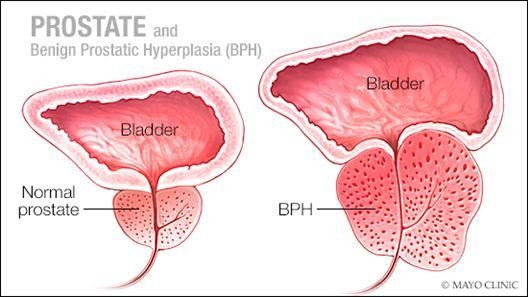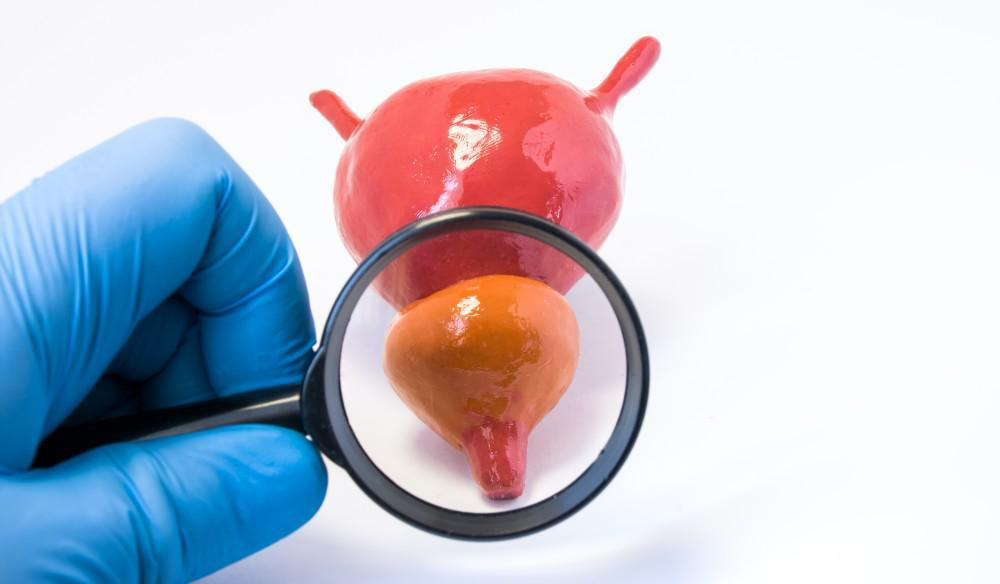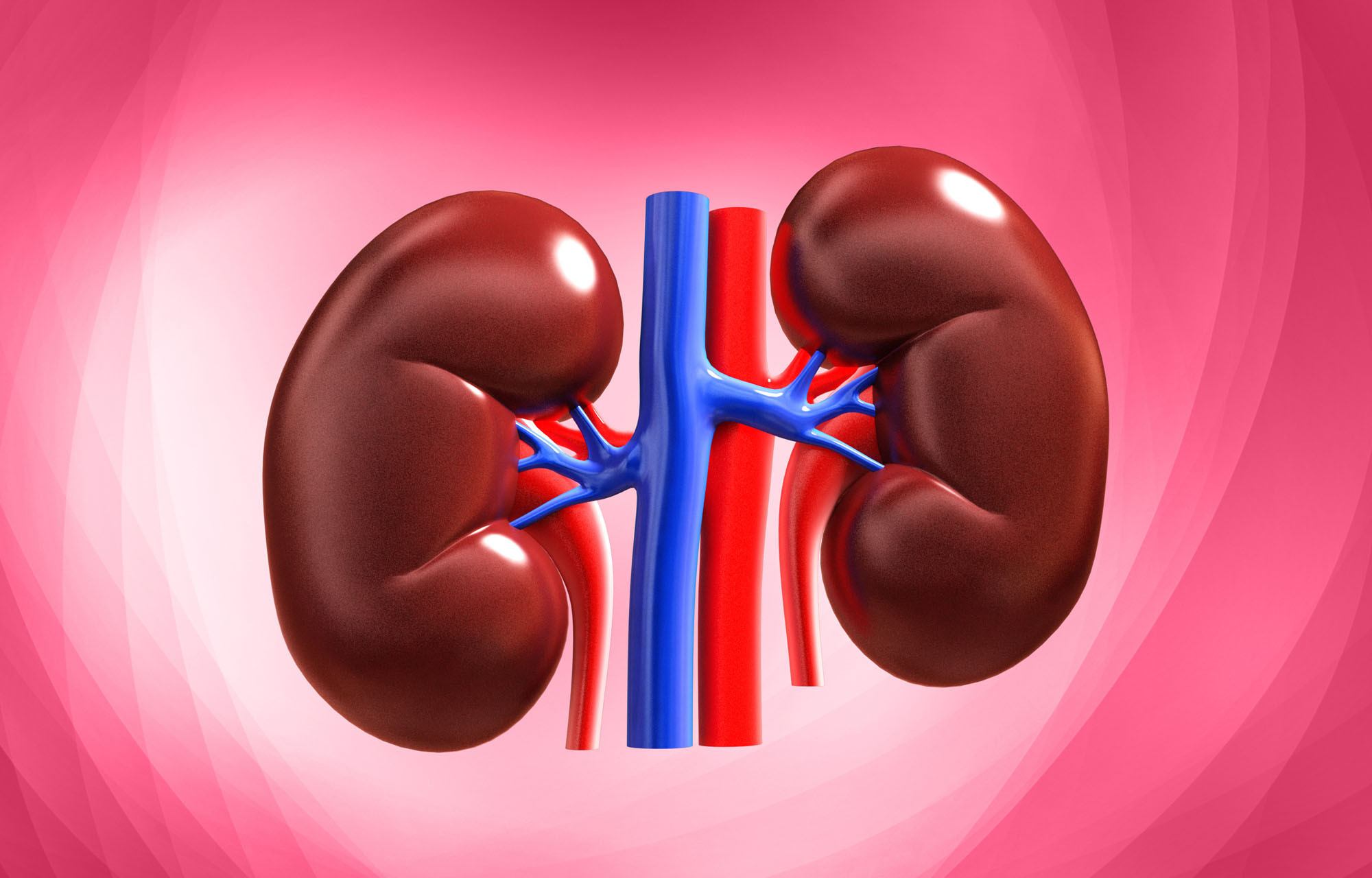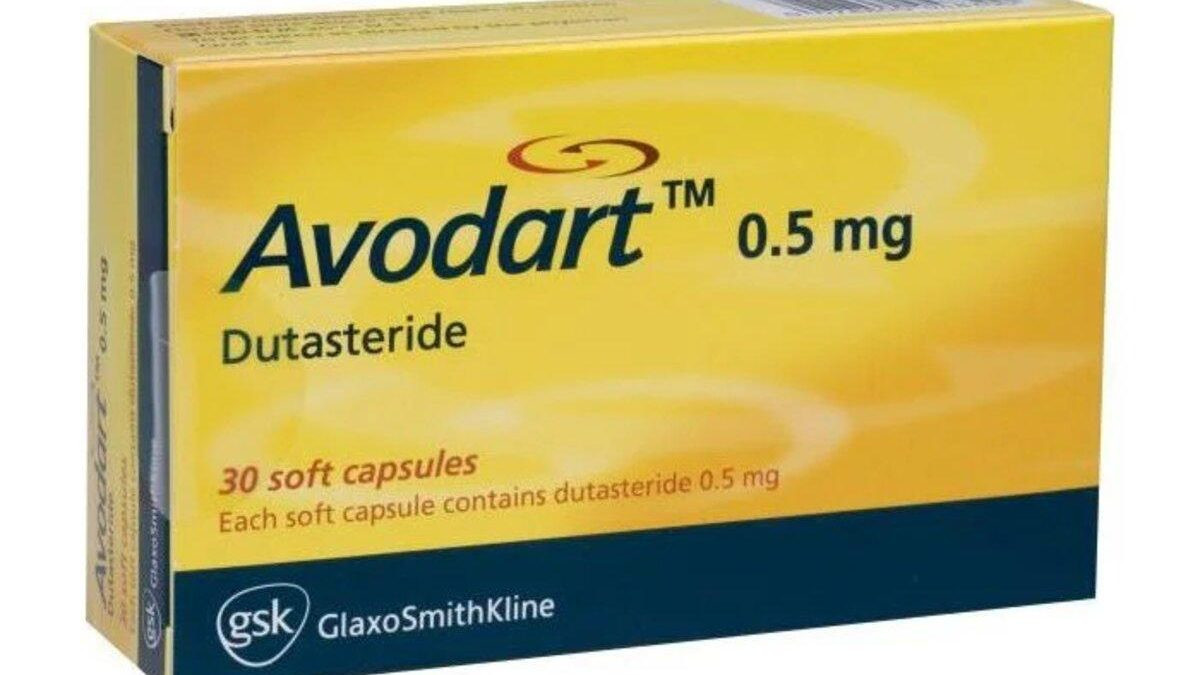Definition
Benign Prostatic Hyperplasia (BPH) is a condition characterized by the enlargement of the prostate gland, commonly seen in older men. An enlarged prostate gland often causes urinary tract issues and health complications if left untreated.
The prostate gland is a male reproductive gland located beneath the bladder. The bladder is the reservoir for urine before it is excreted. In BPH, the prostate gland enlarges significantly and presses on the bladder. The enlargement, in this case, is benign and not classified as cancer.
This condition is commonly found as men age. About 50% of men over 50 are at risk of developing BPH. Additionally, research in the United States indicates that the prostate gland volume increases by approximately 2 to 2.5 percent annually. Benign enlargement of the prostate gland is estimated to occur in up to 70% of men aged 60-69 and 80% of men over 70.
Causes
The prostate gland is situated below the bladder. The duct that transports urine from the bladder runs through it before it exits via the urethra. Consequently, when the prostate gland enlarges, it can obstruct urine flow and lead to urinary difficulties.
BPH arises from an imbalance between cell division and death, resulting in excessive cell growth. Changes in the balance of sexual hormones as men age are believed to contribute to this condition.
Risk factor
Risk factors for prostate gland enlargement include:
- Aging: Prostate gland enlargement rarely causes symptoms in men under 40. About one-third of men experience moderate to severe urinary problems by the age of 60.
- Family history: Close family members, such as a father or brother with prostate problems, can increase your risk of developing the same condition.
- Medical conditions: Research shows that diabetes, heart disease, high blood pressure, and dyslipidemia (a condition where blood cholesterol levels increase) can increase the risk of benign prostate gland enlargement.
- Lifestyle: Obesity or being overweight can increase the risk of BPH, possibly due to increased body inflammation and estrogen hormone levels. In contrast, exercise can reduce the risk of prostate gland enlargement.
Symptoms
The severity of symptoms in BPH patients varies, but symptoms tend to worsen over time. Common signs and symptoms of BPH include:
- Increased frequency of urination, especially at night
- Urgency to urinate
- Difficulty starting urination
- Weak urine stream, dribbling of urine at the end of urination
- A feeling of incomplete bladder emptying
Sometimes, the following symptoms may occur:
- Urinary tract infection
- Inability to urinate
- Blood in the urine
Diagnosis
The doctor will ask about the details of your complaints, especially those related to urinary problems. They will also examine to rule out the possibility of malignancy or cancer in the prostate gland or bladder. Inform your doctor about your medication history and your daily activity level.
During a physical examination, a digital rectal exam can be performed to check the condition of the prostate gland, whether there is enlargement, and whether there are signs of malignancy. You may also be advised to keep a diary of urination frequency and urine volume over 24 hours.
This condition generally requires additional tests to confirm prostate gland enlargement and rule out other medical conditions that could be the cause.
- Urine tests: Urine sample analysis can help check for bleeding, signs of urinary tract infection, or metabolic syndrome.
- Blood tests: These can be performed to check kidney function in people with urinary complaints.
- PSA (prostate-specific antigen) test: To measure PSA levels in the blood. PSA is a substance produced by the prostate gland and generally increases when the prostate enlarges.
- Ultrasound: This can help see if there is kidney enlargement, especially if the patient is suspected of having kidney problems.
- Biopsy: Taking a prostate tissue sample for examination if there are signs of malignancy or if prostate enlargement is still considered benign.
Management
The doctor will discuss the best treatment options for you. Treatment is generally determined based on the severity of symptoms, how the complaints affect your daily activities, any other medical conditions you have, and the therapy options you prefer.
- Lifestyle changes: For mild symptoms that do not significantly reduce the quality of life, such as reducing caffeine or fluid intake at night to reduce the need to urinate. You are also advised to lose weight. The doctor will typically evaluate your symptoms periodically.
- Medications: Several classes of drugs can be given to reduce the size of the prostate gland and improve urine flow, such as:
- Alpha-blockers to relax the smooth muscles of the prostate gland and part of the bladder, such as tamsulosin and alfuzosin.
- 5-alpha reductase inhibitors to reduce the size of the prostate gland, such as finasteride.
- Antimuscarinic drugs to improve urinary complaints.
- Surgery: If there are already kidney or urinary tract problems due to urinary complaints that do not improve with medication, the doctor may suggest surgery.
Complications
Complications that can arise from prostate gland enlargement include:
- Urinary Tract Infection: Unable to completely empty the bladder can increase the risk of urinary tract infections.
- Bladder Stones: These are generally caused by the inability to completely empty the bladder. Bladder stones can cause infection, bladder irritation, blood in the urine, and urinary flow obstruction.
- Kidney Damage: Pressure on the bladder due to urine obstruction can directly damage the kidneys. Additionally, bladder infections can reach the kidneys.
Prevention
Regular exercise and maintaining an ideal body weight can reduce the risk of BPH and several other conditions that are risk factors for BPH. If you already have BPH, there are things you can do to prevent it from getting worse, such as:
- Avoid holding in urine, as it can worsen BPH symptoms and cause other problems like urinary tract infections.
- Avoid using certain medications such as allergy and cold medications.
- Limit alcohol consumption to one or two units per day.
- Adopt healthy living habits. Some habits, such as smoking and lack of sleep, can interfere with prostate health.
When to see a doctor?
You should consult a doctor if you experience urinary problems, especially if you are a middle-aged man. Even if the symptoms do not bother you, it is still important to identify or rule out the possibility of certain diseases or causes. Untreated urinary problems can lead to urinary tract obstructions.
If you cannot urinate at all, seek medical help immediately.
Looking for more information about other diseases? Click here!
- dr Hanifa Rahma
Benign prostatic hyperplasia (BPH) - Symptoms and causes. (2021). Retrieved 23 August 2022, from https://www.mayoclinic.org/diseases-conditions/benign-prostatic-hyperplasia/symptoms-causes/syc-20370087.
BPH Prevention and Treatment. (2018). Retrieved 23 August 2022, from https://reverehealth.com/live-better/bph-prevention-and-treatment/.
Ng, M., & Baradhi, K. (2022). Benign Prostatic Hyperplasia. Retrieved 23 August 2022, from https://www.ncbi.nlm.nih.gov/books/NBK558920/.












